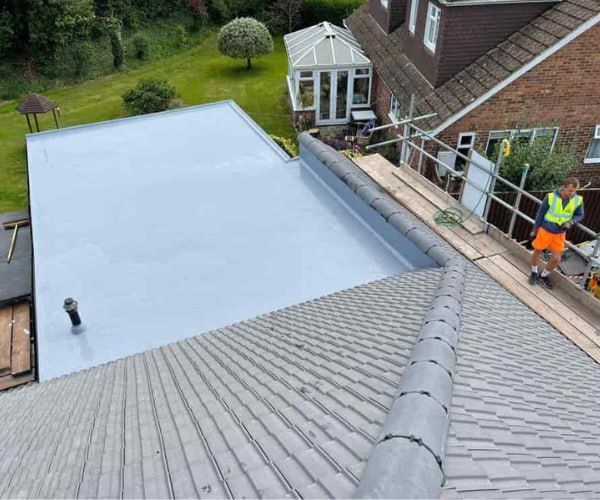Choosing the Right Material for Your Flat Roof: Options and Considerations
Introduction: Regarding flat roofs, selecting the suitable material is crucial to ensure durability, longevity, and effective protection for your home. With various options available, it’s essential to consider factors such as weather resistance, cost, maintenance requirements, and aesthetics. In this blog post, EA Roofing Daventry will explore the different materials for flat roofs and the key considerations to help you make an informed decision.
- Built-Up Roofing (BUR): Built-Up Roofing, also known as BUR or tar and gravel roofing, has been a popular choice for flat roofs for decades. It consists of multiple layers of asphalt and roofing felt, finished with a top layer of gravel or a reflective coating. BUR offers excellent durability, fire resistance, and affordability. However, installing it can be labour-intensive and may require regular maintenance and periodic reapplication of the top protective layer.
- Modified Bitumen Roofing: Modified bitumen roofing is a modern variation of BUR that offers improved flexibility and ease of installation. It consists of a reinforced base material, typically fibreglass or polyester, coated with bitumen. Modified bitumen roofs are available in various installation methods, including torch-applied, self-adhesive, or cold-applied. They provide excellent waterproofing capabilities, UV resistance, and durability. Regular inspections and maintenance are necessary to ensure long-term performance.
- EPDM (Ethylene Propylene Diene Monomer): EPDM is a synthetic rubber membrane widely used for flat roofs. It offers exceptional durability, flexibility, and weather resistance. EPDM membranes are typically manufactured in large sheets that are seamed together during installation. EPDM roofs require minimal maintenance and can last for several decades. However, proper installation is crucial to avoid seam failures or damage from foot traffic.
- PVC (Polyvinyl Chloride) Roofing: PVC roofing membranes are known for their exceptional durability, chemical resistance, and energy efficiency. PVC roofs are heat-welded during installation, creating a seamless and watertight barrier. They offer excellent UV resistance and reflectivity, reducing heat transfer and lowering cooling costs. PVC roofs require minimal maintenance and have a long lifespan. However, they can be more expensive than other options.
- TPO (Thermoplastic Olefin) Roofing: TPO roofing is gaining popularity for its excellent heat-reflective properties and energy efficiency. It is a single-ply membrane made of a blend of ethylene propylene rubber and polypropylene. TPO roofs offer good durability, flexibility, and resistance to UV radiation. They are typically installed using heat-welding techniques, ensuring a strong and seamless bond. Regular maintenance and inspections are necessary to address potential seam failures.
Considerations: When choosing the right material for your flat roof, consider factors such as climate, budget, lifespan, maintenance requirements, and local building codes. It’s essential to consult with a professional roofing contractor who can assess your specific needs and recommend the most suitable material for your flat roof.
Conclusion: Selecting the right material for your flat roof is crucial for its long-term performance and protection. Built-Up Roofing, Modified Bitumen, EPDM, PVC, and TPO are all viable options, each with its unique advantages. By considering factors such as durability, cost, maintenance, and climate suitability, you can make an informed decision. EA Roofing Daventry is here to help you choose the ideal material for your flat roof and provide expert installation and maintenance services. Contact us today to discuss your flat roof requirements and ensure a durable and reliable roofing solution for your home.
Call us on 01327 223 899 or click here to complete our contact form and see how we can help with your roofing needs.

